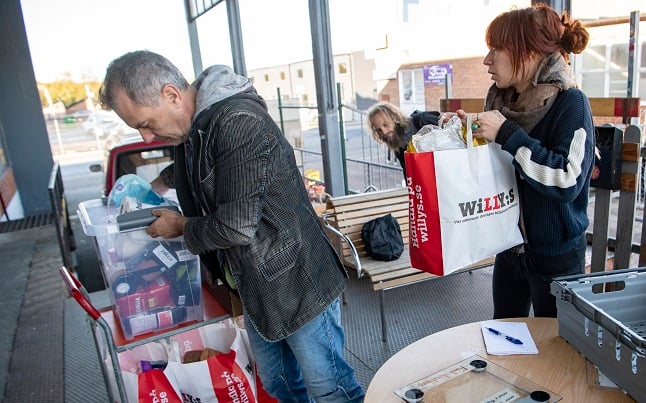Social and cultural centre Kontrapunkt has been collecting food which would otherwise be wasted for years, and passing it on to people in need by serving meals four days a week. But they found that they still had a surplus of food, and decided to offer it directly to anyone who needed it through a food bank.
Ten volunteers will work at the food bank, handling two tonnes of food each day, received from local shops and businesses who have produce leftover. No questions will be asked of the recipients, and no checks will be carried out.
“People will be able to come here and take the food they need for the day,” said Kalle Palmgren, one of the volunteers working on the new food bank. “This will be the first such place that is open to all.”
A 'social supermarket' that opened in Stockholm in 2015 was the first Nordic food bank at the time, but membership was only granted to people on income support or who were understood to be jobless or on a very low income.
The plan is for the Malmö food bank to open officially in 2020, but according to Johanna Nilsson from Kontrapunkt, it already sees between 30 and 40 visitors each day.
Nilsson said the centre comes into contact with many people who don't have sufficient food.
“When we ran [a food bank] as a pilot project for five months we had up to 100 people every day who came to get food and queued outside; everyone from students to undocumented migrants to families with children,” she said.
“But what we noticed was that the biggest group was pensioners and older people.”
The difference between the pilot project and the new plans is that the centre now wants to be a registered food bank with a permanent location for food distribution.
The volunteers at Kontrapunkt believe that food poverty is a growing problem in Sweden, even if the term itself hasn't been used so much. A recent report from Stadsmissionen shows that there are many people in Sweden who do not have enough food to eat.
The study was carried out by Magnus Karlsson, a professor in social work, who mapped Stadsmission's work and found that out of 300,000 actions carried out by the organization over a five-year period, an “overwhelming proportion” related to food.
Karlsson also pointed to a Norwegian study from 2016 which estimated that between one and four percent of people in the Nordics lived in food poverty.
“I believe that number has been calculated too low, and I think we have a greater number of people who live in huge uncertainty when it comes to food, when and where they will get their next meal,” he said.



 Please whitelist us to continue reading.
Please whitelist us to continue reading.
Member comments